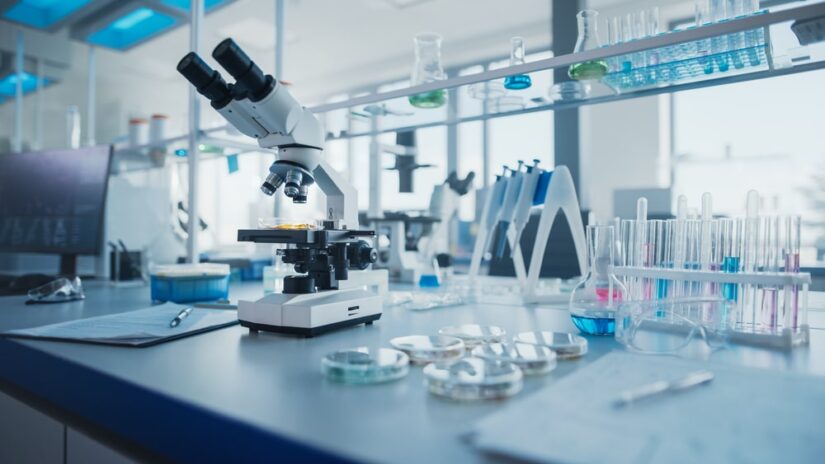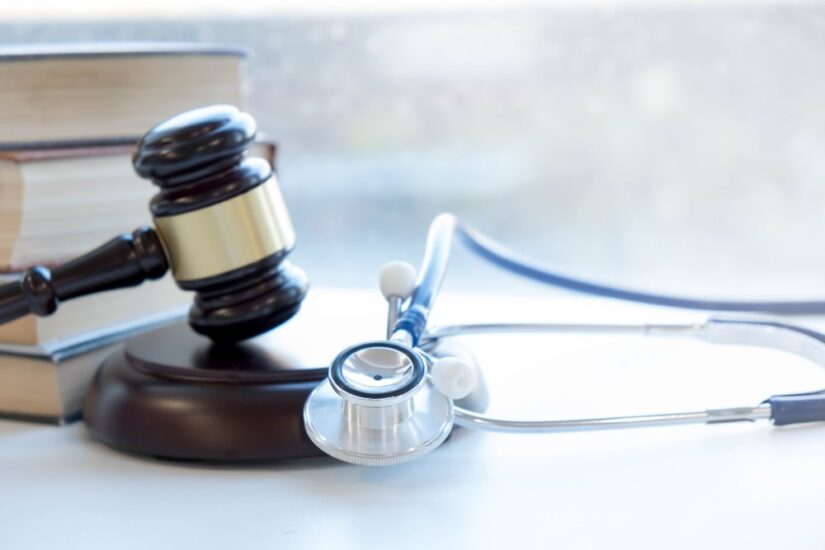Diagnostic errors related to lab mistakes are one of the leading causes of medical malpractice lawsuits, affecting thousands of patients annually. These mistakes can lead to medical misdiagnosis, failure to diagnose, delayed diagnosis, delayed treatment, wrong patient, and serious illness. If you believe a laboratory error has impacted your health, a laboratory error lawyer can help.

The Role Of A Laboratory Error Lawyer
Laboratory errors can have serious consequences for your health. A laboratory error lawyer can help:
- Investigate your case to determine if a lab error occurred.
- Gather evidence to prove the error and how it harmed you.
- Fight for compensation for medical bills, lost wages, and pain and suffering.
If you suspect a lab mistake impacted your health, a lawyer can guide you through the legal process.
Key Services Offered by Ogg, Murphy & Perkosky, P.C.
Ogg, Murphy & Perkosky, P.C. is a leading law firm focusing on handling cases related to laboratory errors in Pittsburgh, Pennsylvania. With a team of experienced and dedicated attorneys, Ogg, Murphy & Perkosky, P.C. We have established ourselves as the go-to legal team for individuals seeking justice in cases involving medical errors. Our firm understands the complexities of these cases and strives to provide the best possible legal representation for our clients.
Proving Negligence in Laboratory Error Cases
Winning a lab error case hinges on proving four elements:
- Duty of Care: The lab had a responsibility to perform the test accurately.
- Breach of Duty: The lab failed to uphold the standard of care expected in this situation.
- Causation: The lab’s error directly caused harm to the patient leading to deteriorating medical condition.
- Damages: The patient suffered negative consequences due to the lab’s mistake.
In essence, you need to show the lab messed up, that this mistake caused you harm, and you were harmed because of the mistake.
Filing a Lawsuit for Laboratory Errors
Believing a lab error caused you harm? Here’s what filing medical malpractice claims involve:
- Gather Evidence
Collect medical records, test results, and doctor statements. This documentation should clearly show the error in the lab test and any injuries you suffered because of it.
- Consult a Medical Malpractice Attorney
An attorney focusing on medical malpractice can assess your case. They’ll help you understand your legal options and determine if you have a strong delayed diagnosis case against the lab.
- File a Lawsuit
If you choose to proceed, your attorney will file a lawsuit against the lab. This lawsuit will claim medical negligence and seek compensation for damages caused by the lab’s error. Damages can include medical bills, lost wages, and pain and suffering.
Medical malpractice cases are intricate, and consulting an experienced medical malpractice lawyer is recommended to maximize your chances of success.
The Importance of Expert Witnesses in These Cases
Expert witnesses play a vital role in laboratory error lawsuits. These are individuals with specialized knowledge and experience in laboratory practices and procedures. The testimony of a medical professional helps clarify complex scientific and medical issues for the court through:
Establishing Standard of Care: Experts define the accepted practices and procedures followed by qualified laboratories in similar situations. This helps determine if the lab’s actions deviated from the expected standards.
Proving Breach of Duty: By examining the standard of care and your medical history, experts can demonstrate whether the lab’s actions fell below this standard, thus constituting a breach of duty.
Causation Link: Experts can link the lab’s error to your specific injury by explaining how the mistake in the test results impacted your diagnosis and treatment.
Expert witnesses strengthen your case by providing credible, objective testimony that clarifies complex issues and helps the court understand how the lab’s error caused you harm.
Relevant Laws and Regulations Related to Laboratory Errors
In Pittsburgh, Pennsylvania, laboratory errors are governed by a combination of state and federal laws and regulations aimed at ensuring patient safety and quality of care.
State Regulations
The Pennsylvania Department of Health oversees laboratory operations in the state, enforcing regulations outlined in the Pennsylvania Code Title 28 Health and Safety. These regulations cover various aspects of laboratory testing, including personnel qualifications, quality control procedures, and reporting requirements for laboratory errors.
Federal Regulations
The Centers for Medicare & Medicaid Services (CMS) also plays a role in regulating laboratory operations through the Clinical Laboratory Improvement Amendments (CLIA) program. CLIA establishes standards for laboratory testing to ensure the accuracy, reliability, and timeliness of results.
Laboratories in Pittsburgh must adhere to these regulations to maintain licensure and certification. Failure to comply with applicable laws and regulations may result in penalties, fines, or loss of accreditation.

Potential Damages and Compensation Available to Victims
If a lab error caused you harm, you may be entitled to compensation for various losses. Here are some common damages:
- Medical Expenses: This covers past and future costs of treating the injury caused by the lab error, including doctor visits, medications, and hospital stays.
- Lost Wages: If your injury forced you to miss work, you can recover lost income.
- Pain and Suffering: Compensation for physical and emotional distress caused by the lab error and its consequences.
- Reduced Earning Capacity: If your ability to work is permanently impaired due to the lab error, you may recover for future lost wages.
The specific amount of compensation depends on the severity of your injury and the impact it has on your life. Consulting a lawyer can help determine the full extent of your damages and ensure maximum compensation.
Guidance on What to Do If You Suspect a Laboratory Error
If you suspect a laboratory error, taking immediate action is essential to protect your health and rights.
Steps to Take:
- Document: Keep records of your medical tests, results, and any symptoms or concerns you experience.
- Contact: Inform your healthcare provider about your suspicions and request further evaluation or retesting if necessary.
- Seek Advice: Consult with a legal professional specializing in medical malpractice to understand your options and rights.
Promptly addressing suspicions of a laboratory error can help ensure accurate diagnosis and treatment while safeguarding your legal interests.
Get Started
Seeking legal assistance for laboratory errors in Pittsburgh? Ogg, Murphy & Perkosky, P.C. are trusted lawyers focusing on laboratory error cases. Contact us today for a free consultation.
